The 10 best journaling apps to collect your thoughts
The best journaling apps are a great way to collect your thoughts, these are the ones we love


The best journaling apps are a great way to take some time to yourself during the day and collect your thoughts. While the traditional way to journal includes putting pen to paper, there are now so many ways you can journal on the go, making it even easier to incorporate this habit into your daily routine.
Journals can be a great way to organize your thoughts and feelings throughout the day, but rather than planning out your to-do list, they ask you to focus on gratitude and self-love. Journaling is based on the idea of affirmations and things that you’re grateful for. By highlighting the positive in life rather than the negative, journaling allows you to get some me-time each day and is also an easy way to practice mindfulness in your daily life.
Alongside one of the best productivity planners, the best journaling apps make this daily practice even easier by being accessible wherever you are. As someone who has always enjoyed journaling in a physical notebook or specific gratitude journal, I was slightly hesitant about using an app to do this each day. After all, I know that looking at my phone too much doesn’t always help me when I’m trying to deal with stress, so the idea of using an app to journal seemed slightly counterintuitive. However, after a week of testing these apps, I found that I loved the ease of journaling in this way, and I looked forward to using the apps each evening before I went to bed.
How I tested the best journaling apps
When testing the best apps for journaling, I thought about the following:
- How easy was it to use?: Anything that was too complicated to use each day would probably provide the opposite effect of the calming atmosphere you want while journaling. Filling out a journal shouldn’t take up too much of your time, so I wanted to use apps that were easy and fun to use, not confusing.
- Cost: Lots of journaling apps offer a free version and a premium one, but I found that most of the time, the free versions featured all the essentials you would want. We added the prices for premium accounts in this list, which were all reasonable, but you would generally still get a lot out of the app without paying for a premium version.
- How does it look?: If you’re using an app just before bed, or first thing in the morning, you don’t want something that’s too stimulating. A simple interface or design is probably preferable. Lots of apps featured sweet illustrations or even the option to create your own avatar, which attributed to my wanting to open the app each day.
- Would I use it instead of a physical journal?: Some would probably say there’s no alternative to the process of writing down your thoughts on paper. Realistically, though, it’s much easier to use an app than to remember to bring your notebook or journal around with you everywhere, and there’s also the added benefit of adding in an entry whenever you feel like it - lots of these apps even asked you to jot things down three times a day.
The best journaling apps, as tested by us
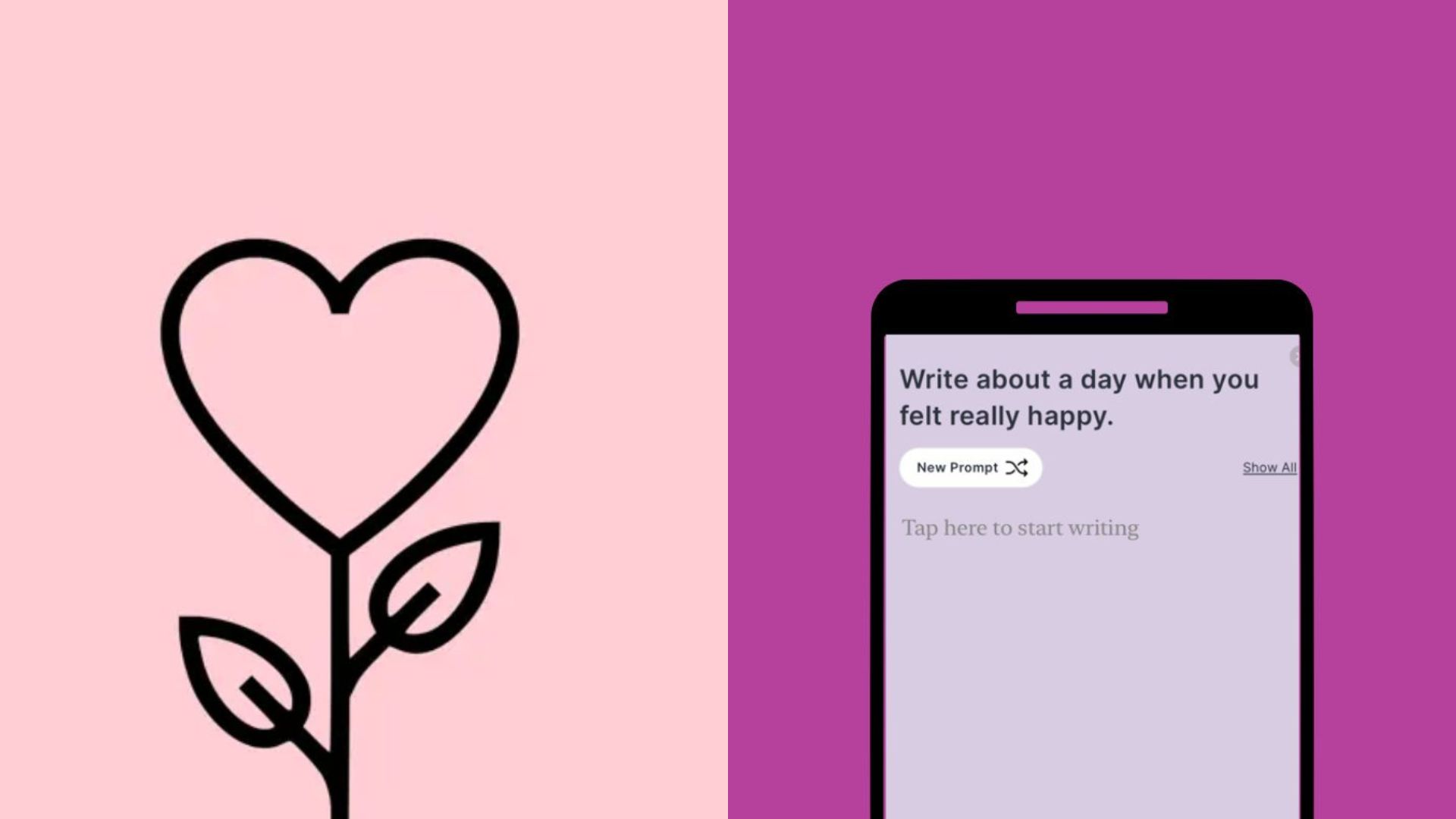
1. Gratitude
Specifications
Reasons to buy
Reasons to avoid
Gratitude is definitely my top pick of the best journaling apps, and while you do have to pay for the premium version, the amount that you get for your money with this app is impressive. With the premium account (of which a free trial is available), Gratitude lets you access even more journal prompts and daily affirmations, as well as unlimited sections in your vision board and multiple photos with your journal entries. However, both of these are capped at one in the free version.
Whichever version you choose, Gratitude is the definition of an all-rounder. Each day you can add several journal entries, all of which are spurred on by prompts such as ‘write about someone you’re grateful to have in your life’ and ‘reflect on the progress you’ve made so far’. You can edit these journal entries with different colors for the backgrounds and access daily affirmations, from pre-written affirmations from the app’s creators to your own personalized ones, which you can sort into different folders for when you need them. Gratitude really does have everything, and the company even has a newsletter, blog, podcast, and courses to enjoy while using the app.
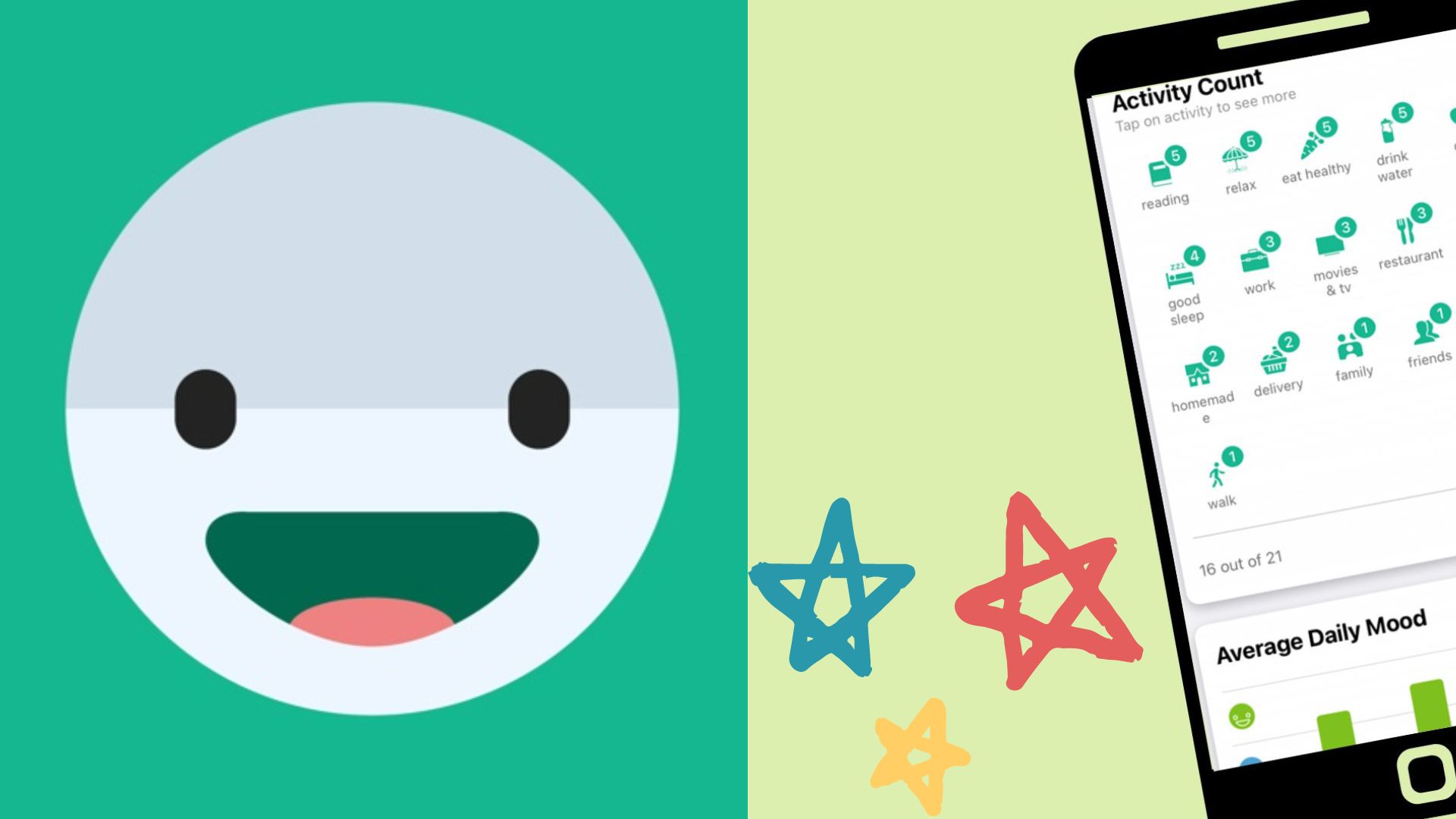
2. Daylio
Specifications
Reasons to buy
Reasons to avoid
While journaling is usually considered more of a meditative practice than a way to organize your life, some apps double up and do include goal and habit tracking alongside gratitude journaling, making them some of the best organization apps as well. When using the premium version of the app (£18.99 / $23.08 per year after a one-week free trial), Daylio allows you to track goals when you journal each evening. It also includes habit suggestions in case you need them to prompt your thoughts, such as meditation, sleeping eight hours a night, or even couple-based goals like having date nights.
When it comes to journaling in the app each evening, you’re asked to choose how you feel from a range of emotions before the app asks what you’ve been up to. You can choose from a variety of different illustrations in different categories, from social and hobbies to sleep and health. Here’s where you tick off whether you completed your desired goal that day, add a photo if you wish, and write a note. Within the note section, there’s a variety of templates, including ‘night brain dump’, ‘morning reflection’ (if you prefer to journal in the morning instead), ‘to-do list’, and ‘gratitude entry’. I liked how the app seemed to span across so many different functions, doubling up as one of the best habit tracker apps while also focusing on gratitude and reflection. It’s completely up to you if you even add these goals, or how much you use the app, so it’s a flexible option for someone just getting started with the concept of journaling or someone who also wants one of the best habit tracker apps.
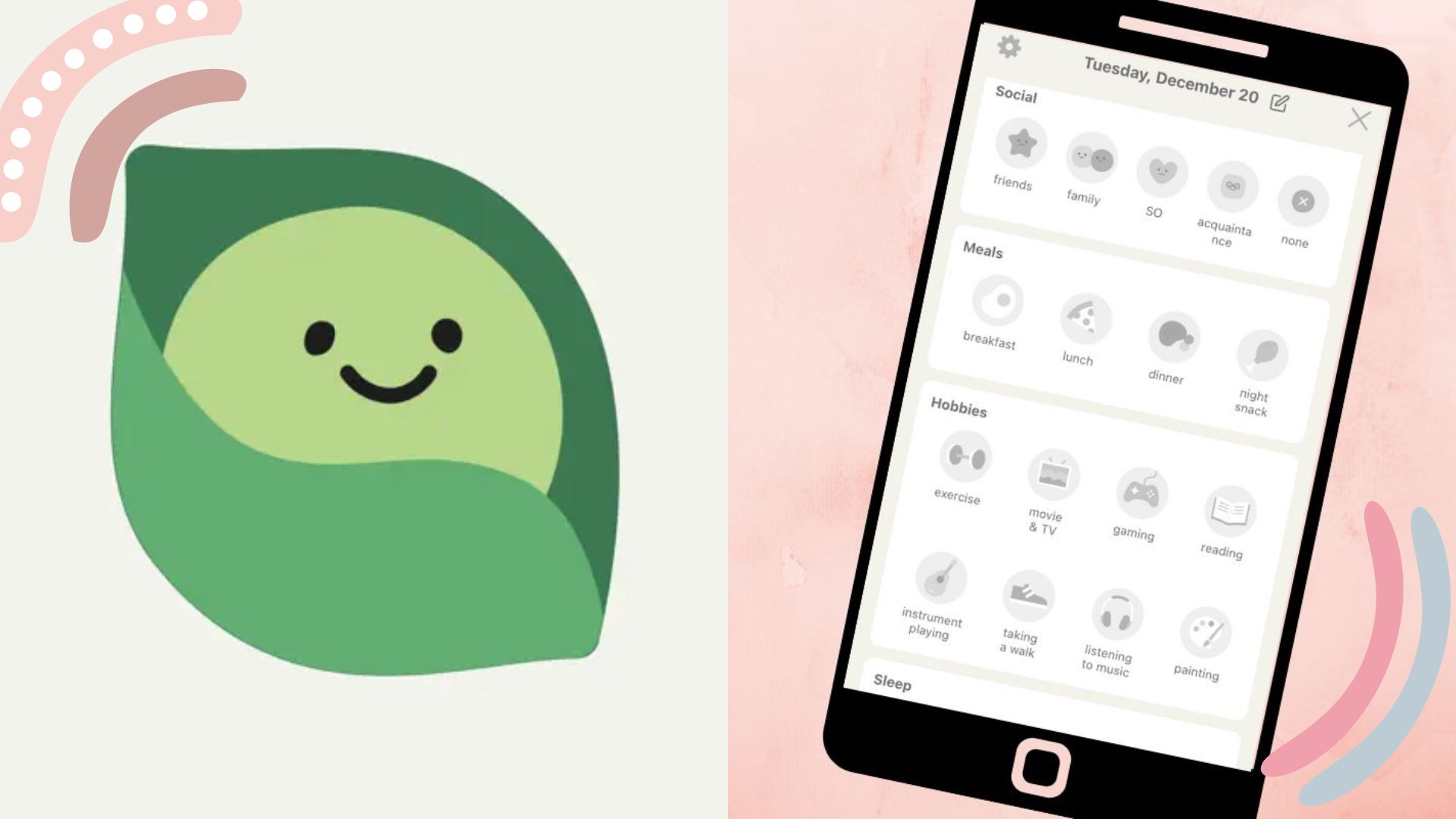
3. Daily Bean
Specifications
Reasons to buy
Reasons to avoid
Similarly to Daylio, Daily Bean lets you choose which parts of your day you want to record, from choosing emotions to social activities, meals, health and even the weather, which could be helpful if you're struggling with motivation to work out in winter and want to take on something new, like one of the top fitness trends. These aspects of your day and emotions are sorted into ‘record blocks’, which can be hidden or shown on your app. If you have some time off coming up from regular activities like work, you can ‘hide’ these and they won’t form part of your daily journaling prompts until you choose to make them visible again.
You can also record your sleep without having to sync to the health app on your phone and add up to three photos to accompany your day’s record. There’s no pressure to write stuff down if you’d rather stick to the emoji-like icons to record your day, making this an easy option for those who find themselves shattered by the end of the day. On the premium version of the app, you’ll enjoy no ads and more in-depth reports on how your mood and activity level has been across the time you’ve used the app. You can also add a ‘pin lock’ to the app if you’re worried about privacy but it’s worth noting that passwords can’t be retrieved, so you’d be a bit lost if you forgot it.
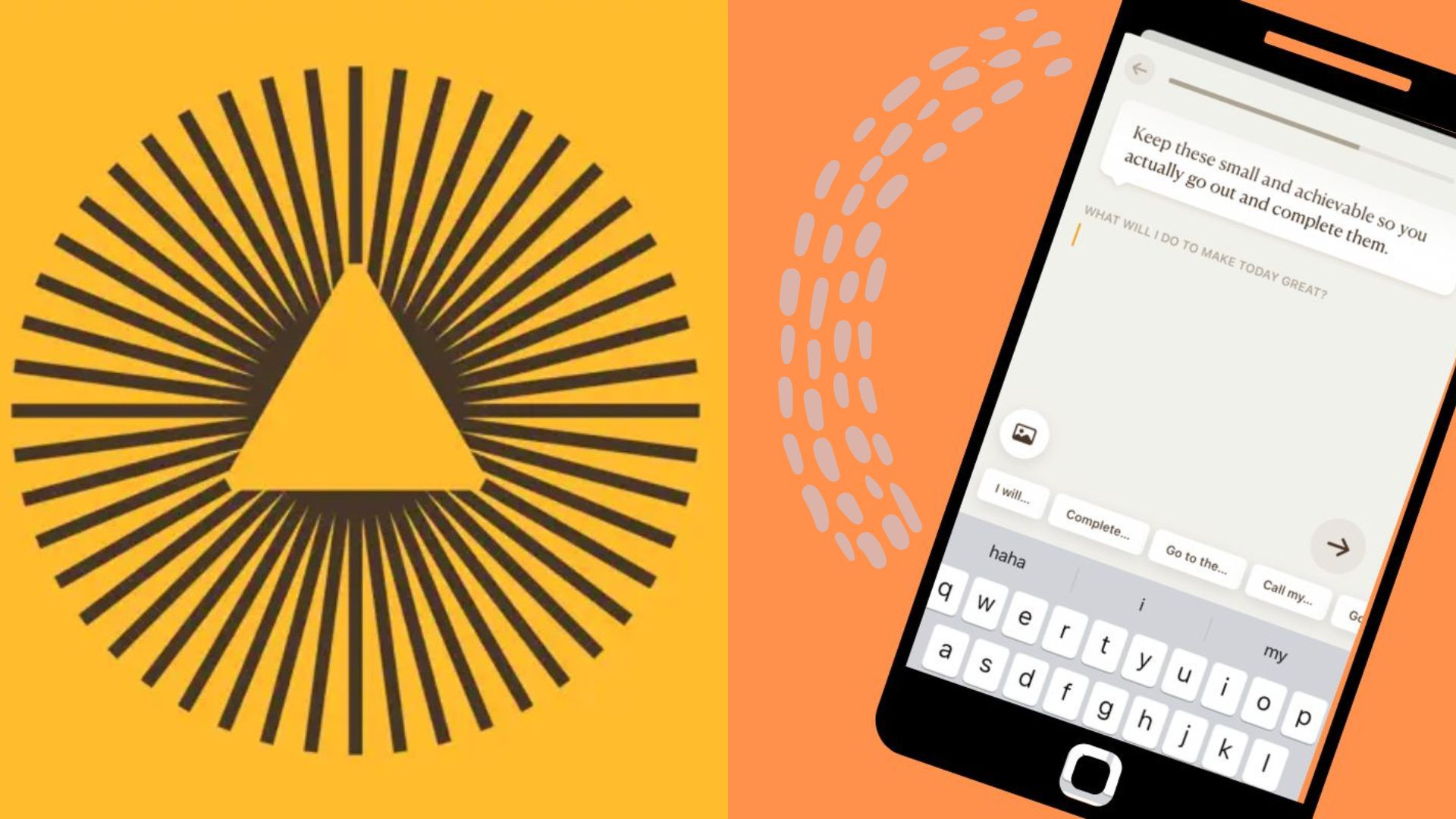
4. Five Minute Journal
Specifications
Reasons to buy
Reasons to avoid
Wholly focused on daily affirmations and gratitude, Journal is a simple yet effective app. As one of the best journaling apps, it not only provides journaling templates and prompts each day but also offers a morning and evening guided meditation, and a variety of ‘guides’ to read in a blog-post style that center around self-love and self-care practices. Designed to be used twice a day for five minutes, the Journal app automatically allows you to decide when you want your phone to remind you to use the app (you can even decide on up to 12 reminders a day if you upgrade to the premium version).
One of my favorite parts of the app was the ‘insights’ section, which shows a graphic of the words you most frequently use while filling out the journal prompts. This was a really nice way to look back on what I'd written and it inspired even more gratitude for me. If you want to track your mood, write in the journal without prompts, or add images and videos to your entries you’ll have to upgrade to the premium version, but considering the price and how much you can still access without paying - including the option to add a passcode, making the app super secure, I don’t think it’s totally necessary.
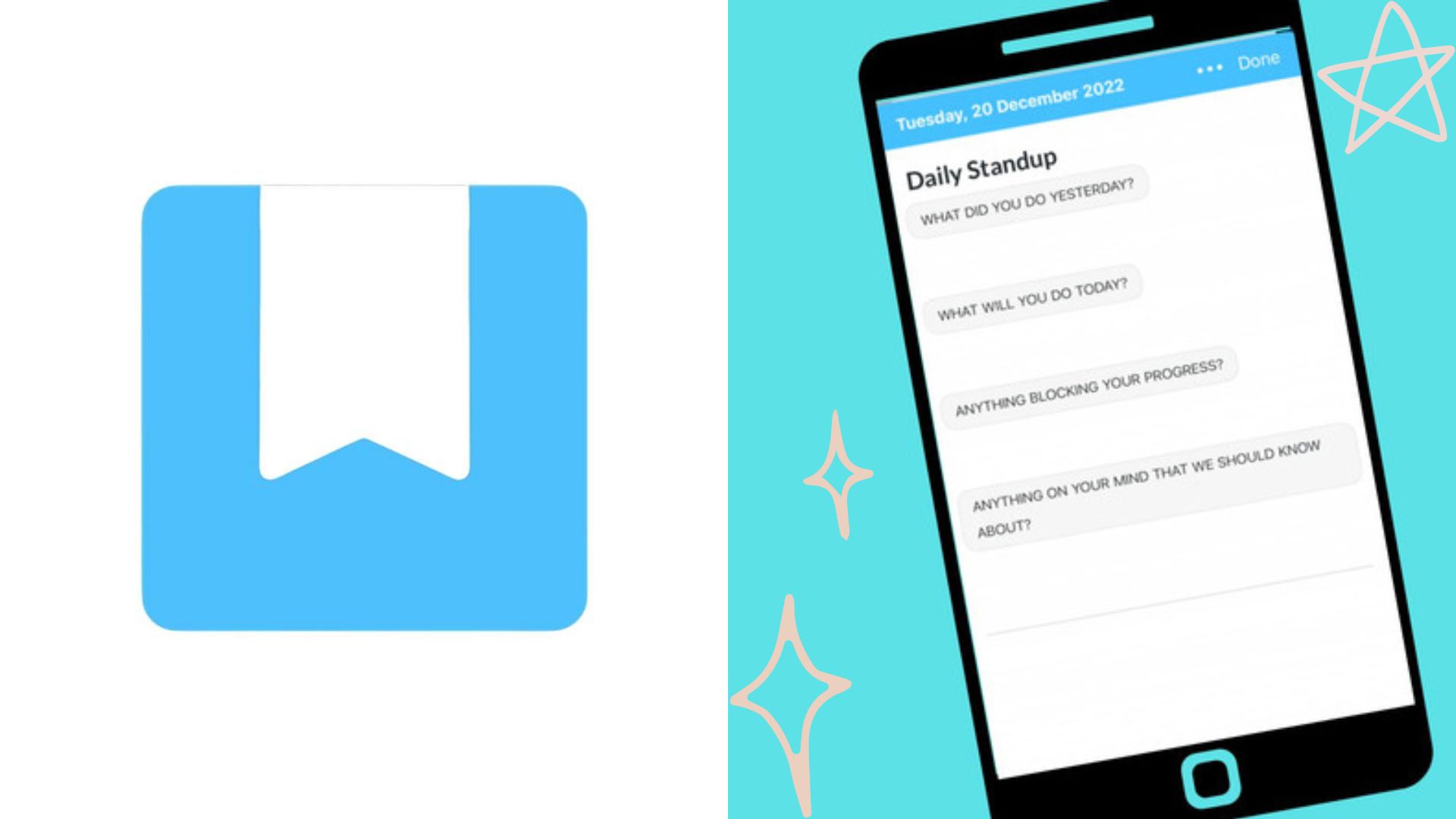
5. Day One
Specifications
Reasons to buy
Reasons to avoid
In terms of layout and the time taken to use the app, Day One is one of the simplest and easiest to use. How you use the journal is sort of up to you, although there are some daily prompts to answer (which you can turn off), that include questions like ‘who are your favorite artists?’ and ‘what does your ideal day look like?’ When filling in the journal section, you can add photos, videos, audio, and PDF files, meaning you can create a scrapbook-style diary to reflect your days. When it comes to the everyday journaling sections of the app, you’re presented with a blank page, so if you’d prefer to freely write down as much as you’d like about your day without any help or affirmations, this app is definitely for you.
However, if you need a bit more guidance when filling out the journal, there are several templates available: these include a ‘five minute AM’ and ‘five minute PM’, alongside templates such as a ‘daily plan’ (which works very similarly to how a productivity planner would), ‘daily gratitude’ and ‘today I…’. I really enjoyed using the two five-minute templates, which involved writing a gratitude entry and a daily affirmation in the morning, and ‘three things that happened today’ in the evening. You can set up notifications within the app to remind you when to fill these sections out, but you’re also able to fill in an entry from the day before if you happened to forget.
The free version of the app can be used for all these functions without needing an account, so if you’re nervous about sharing your data, this is probably one of the safest apps to use. If you do sign in, it’ll ask you to do so with your Apple or Google account, meaning your data in the app will automatically sync and you’ll be able to back up (or export) it anytime you want. The premium version, which is £32.99 / $35.04 a year, allows you to add unlimited photos and videos to your journal, as well as being able to sync across all your devices.
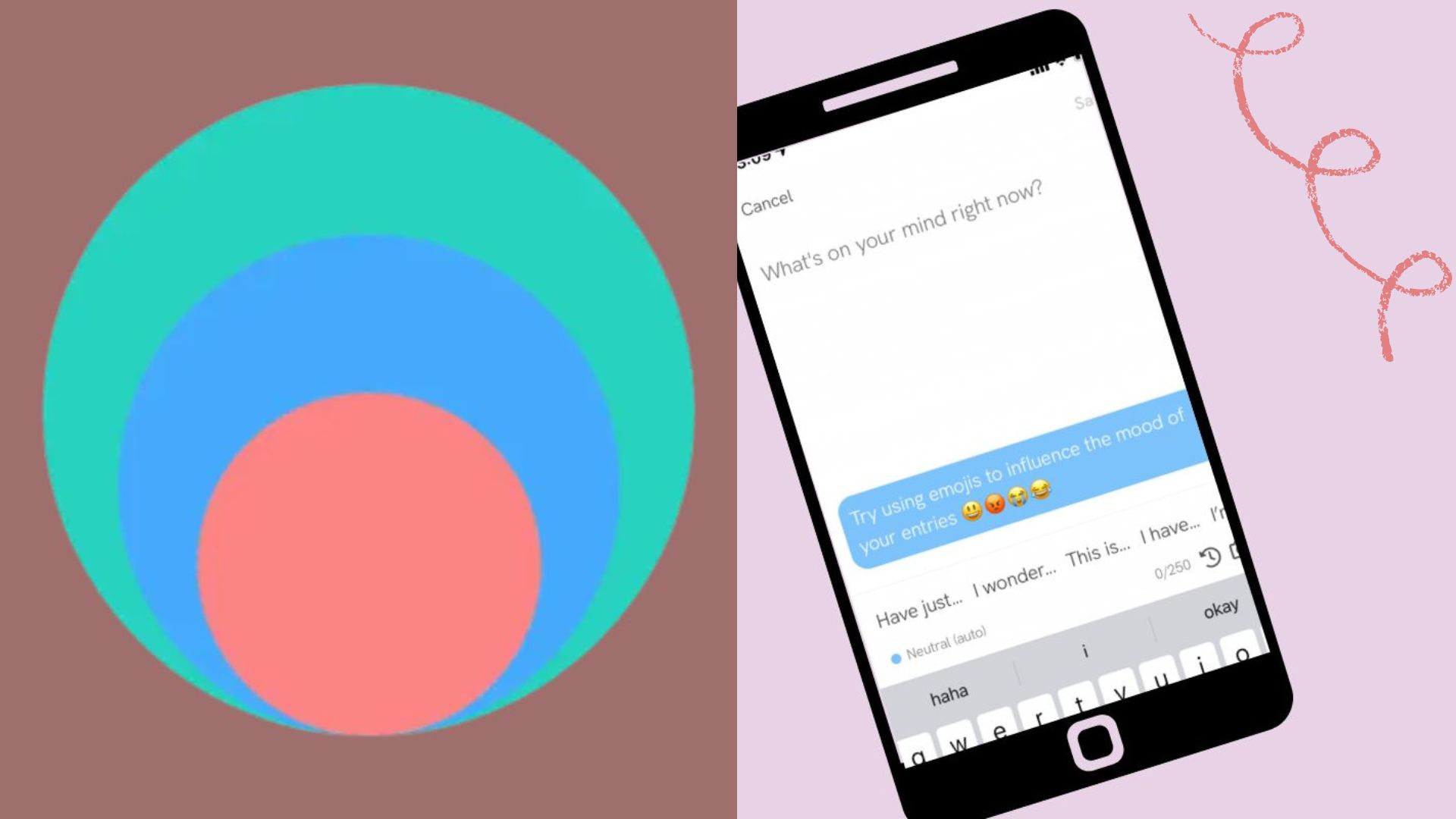
6. Thinky
Specifications
Reasons to buy
Reasons to avoid
The Thinky app is completely free and is a great option for those who don't need extra features such as breathing exercises, a variety of journal templates, or a feature that doubles up as one of the best mindfulness apps. When you go to write a new entry, the app asks you 'what's on your mind right now?', and there are prompts that nudge you with what to write about your day if you're struggling for inspiration.
I liked how simple the formula of the app is, while still featuring a pleasing design and a 'year in pixels' calendar, which shows a pixel for each day you've used the app. You can set one or two reminders today to fill out the app, and search for keywords in past entries if you want to look back on them. It's not one of the most complex apps on this list so this would suit people who don't have that much time to dedicate to using it and those who want to enjoy the benefits of a journaling app without having to pay for it.
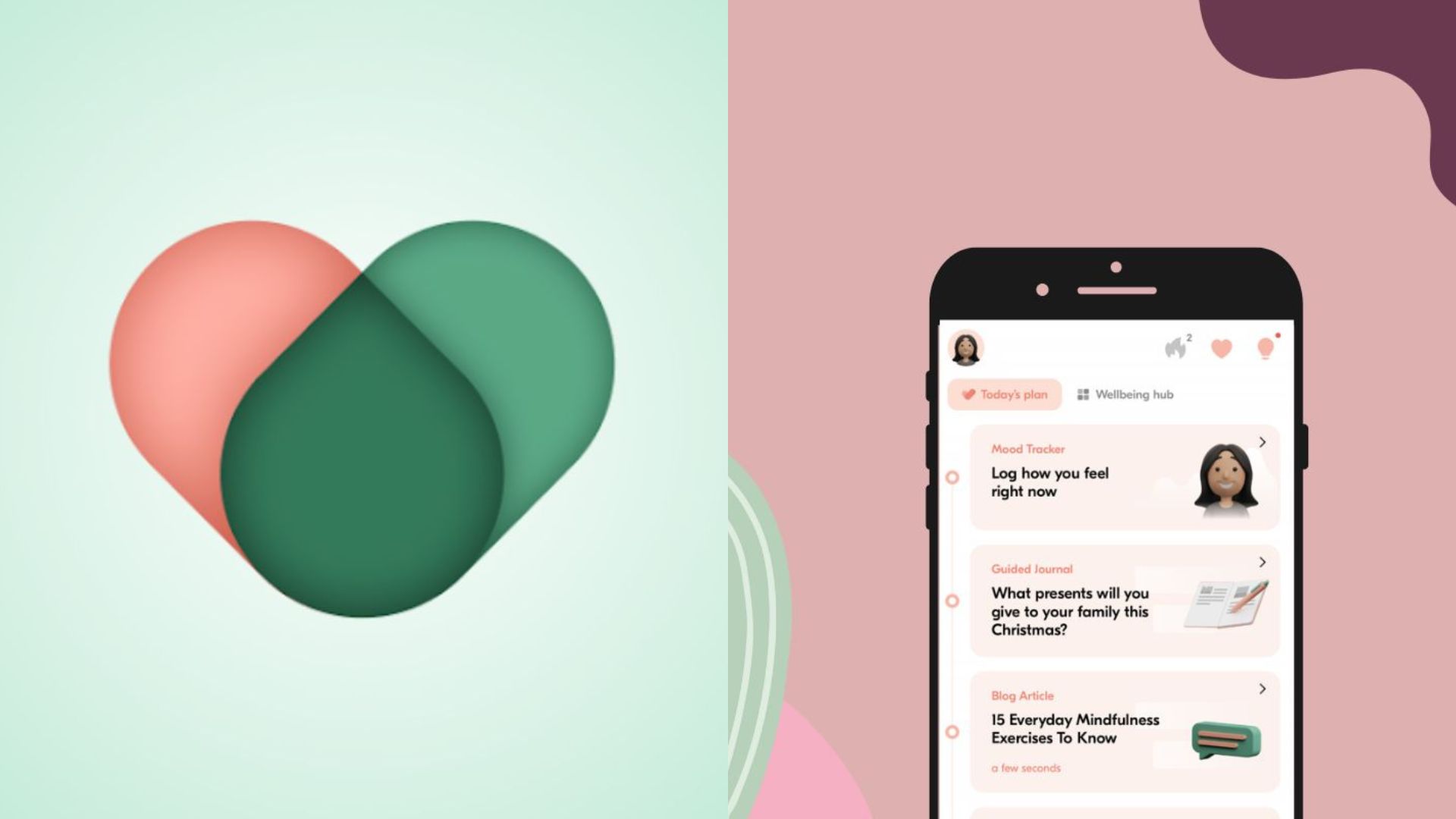
7. VOS
Specifications
Reasons to buy
Reasons to avoid
In terms of an aesthetically pleasing design and easy-to-use formula, I really enjoyed using VOS as a daily journal. With both the free and premium versions of the VOS app, you are asked to create a ‘wellbeing plan’ based on the goals for what you would like to improve on. This could include relationship goals, any health or exercise goals, or goals for your bedtime routine to help you learn how to sleep better. These goals are completely customizable later on and they will form part of the journaling aspect of the app each evening. You’ll be asked how you feel each day and what’s making you feel that way via icons that represent things like friends, family, and work. Then you can add a note for further journaling but there are no templates, meaning you can freely jot down your thoughts in whichever way you please.
Each day’s plan also features a meditative breathing exercise to follow, a gratitude journal entry, an affirmation, and a wellbeing test - though these last two will need to be accessed either with a premium account or by watching some ads on the free version. The premium version of the app is available with a free trial and it opens up extras, such as seeing your mood tracker and a weekly round-up which shows you an overview of your week of journaling. While I looked forward to using the app each day due to its design and the breathing exercises especially, the ads do get a bit frustrating when you’re using the free version of the app and it can be distracting when you’re trying to switch off your brain.
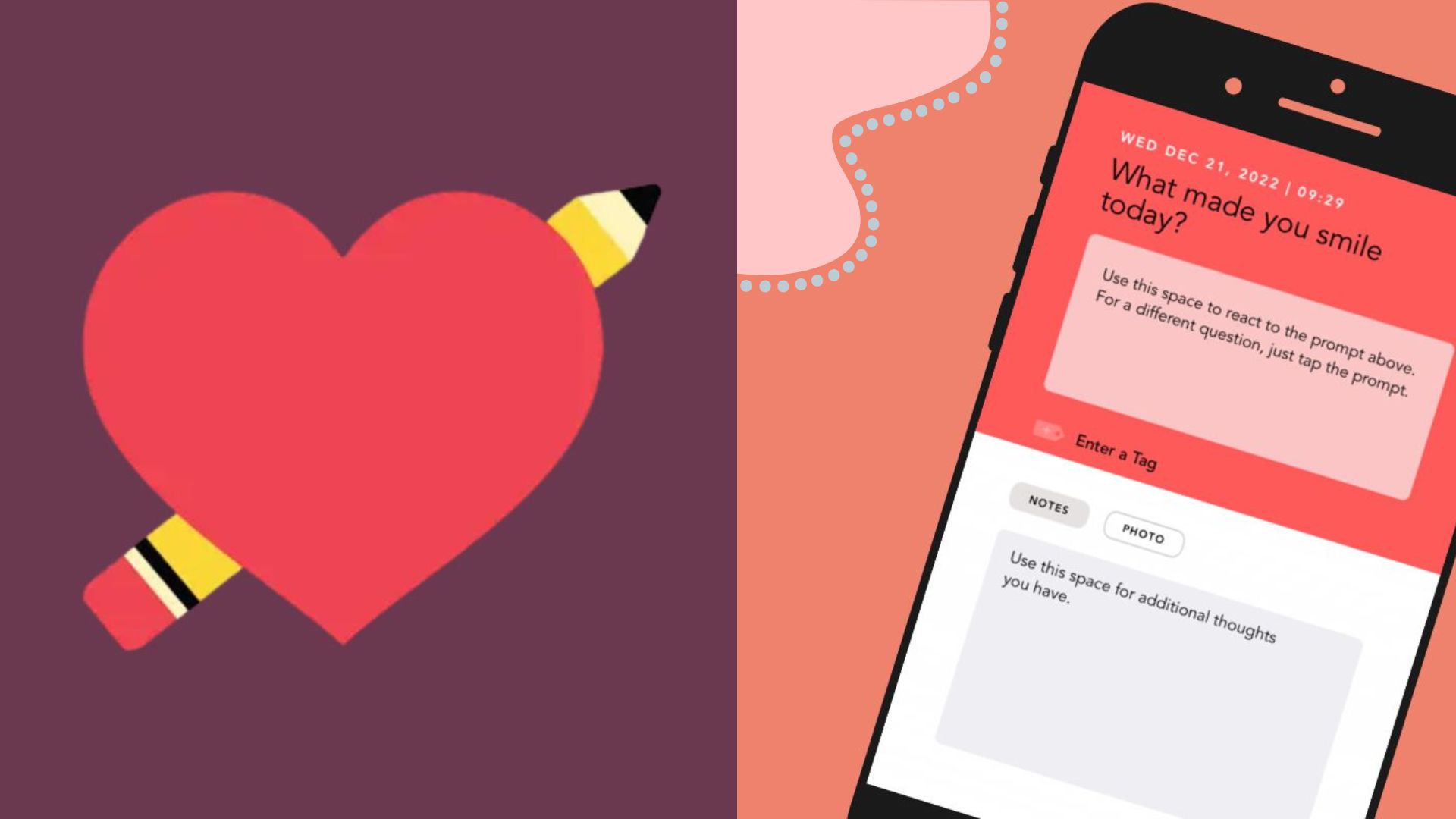
8. Grateful
Specifications
Reasons to buy
Reasons to avoid
If you’re looking for an app to replace the act of journaling in a notebook, and aren’t interested in any extra features, Grateful is the simplest app I've chosen here to use and look at. Each day you’re given a different prompt, such as writing about someone you’re grateful for or something that made you smile that day. These prompts can be personalized by choosing which ones you want to see and you can even write your own ones if you upgrade to the premium version of the app. If you need inspiration, listening to one of the best podcasts for self-improvement should give you some ideas.
I particularly liked how you can add a photo to each journal entry you input. When you use the app consecutively and add a photo each day, this builds up and makes for a really enjoyable way to look back on a visual diary of sorts (it also reminds you to take more pictures!). Bear in mind that while the free version of the app lets you access most of the same features as the paid version, it’ll only let you input 15 journal entries, whereas the paid version is unlimited.
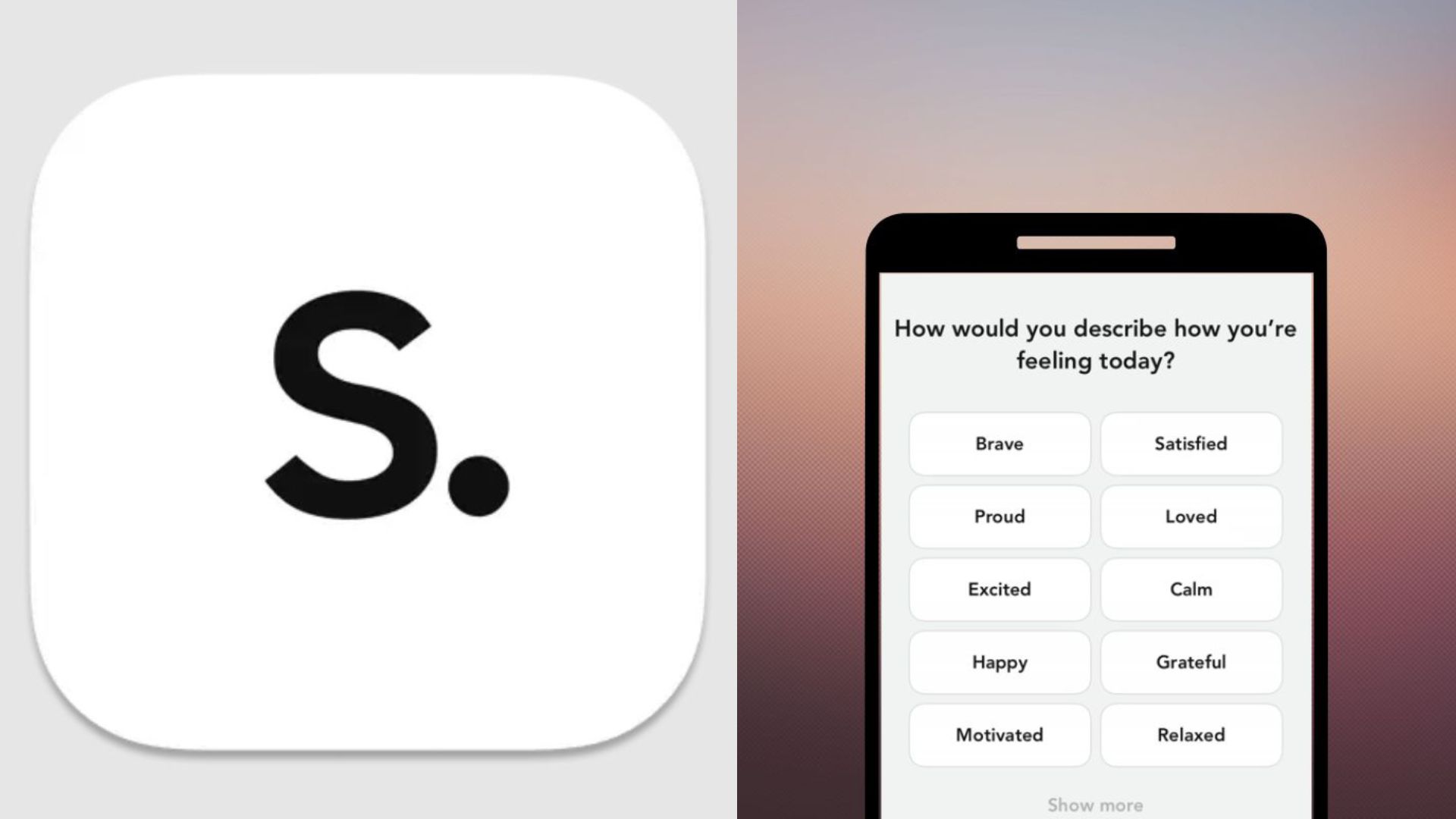
9. Stoic
Specifications
Reasons to buy
Reasons to avoid
The evening journaling, called ‘evening preparation’ on the app, is inspired by what you write in the morning with Stoic, so if you’ve noted that you want to focus on a certain goal or self-care action for the day, you can check back in on it in the evening. There’s a blank page function if you’d prefer to write without a template and you can even set a writing goal with this option, selecting how many words you want to write.
You can also link to your Health data on your phone if you want to track your fitness goals and you’re looking for ways to boost workout motivation while using the app. There are so many different functions to use in the app even without a premium free trial, you could spend hours using the different sections. From prompts related to starting therapy to writing a letter to someone, mood check-ins, and food reviews, there’s so much to use that the app is definitely well-suited to a journaling novice, as well as those who have used several different physical versions and are looking to switch to digital. It's also one of the best time management apps for many of the same reasons; all your daily info is stored in one place, easily accessible any time you need it.
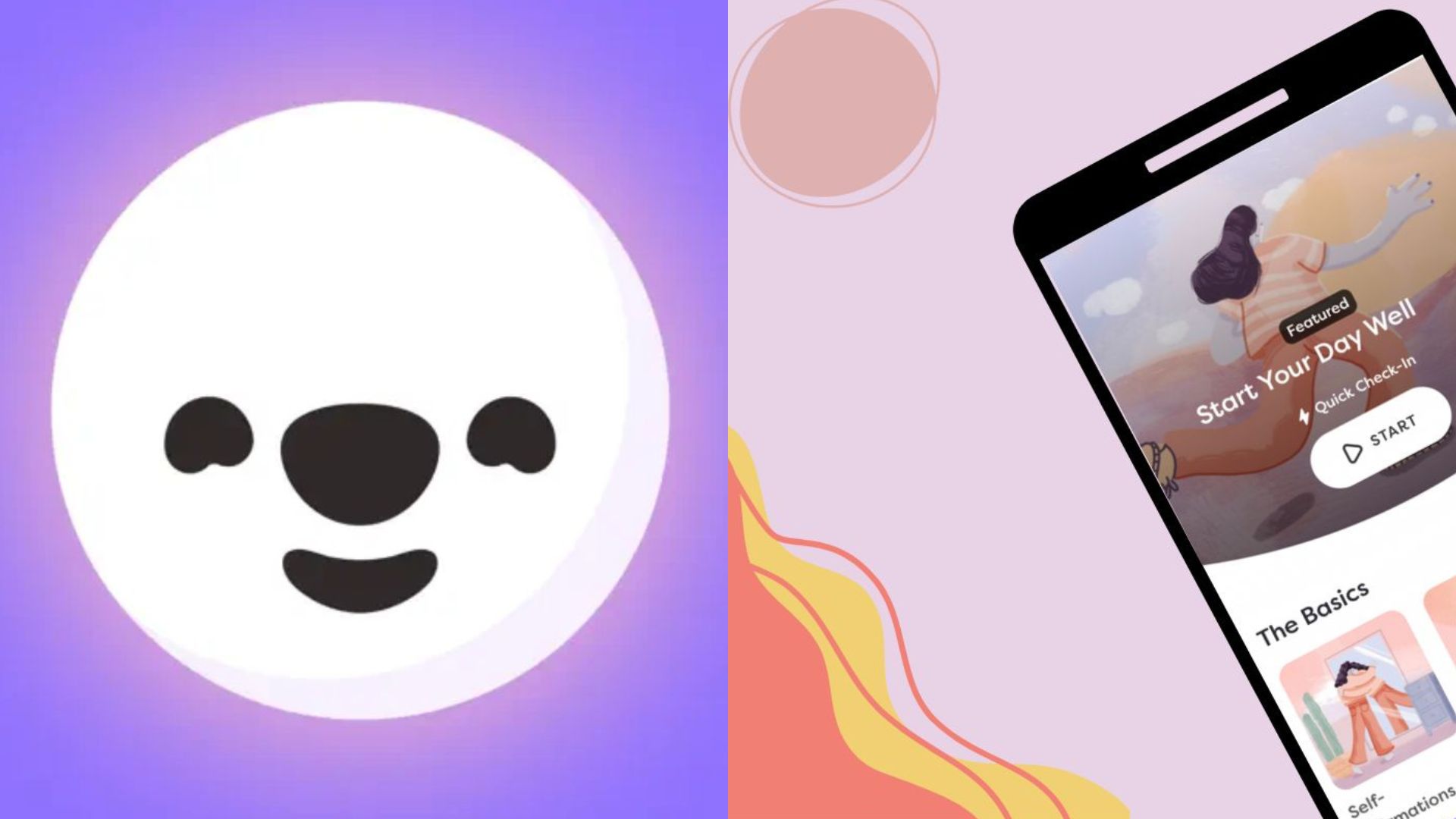
10. Alan Mind
Specifications
Reasons to buy
Reasons to avoid
Alan Mind was designed as a resource for employers to ensure their employees are looking after their mental health, but it can be used by anyone interested in self-care and looking after themselves. While the structure behind the journaling method in the app is based on therapeutical practices, there’s enough personalization at hand that you can cater to whatever your journaling needs may be. Each journal entry (or ‘daily tracker’) features different prompts, based on what you input yourself - for example, the app begins by asking your mood, then what it is that’s making you feel that way, and then why.
On the ‘sleep section’, you can choose from several different guided meditations to relax your mind before your head hits the pillow, and they also ask you to write down notes like what you want to achieve the next day or a thought or feeling from the day you want to let go of. There are self-affirmations available with the ‘exercises’ tab to encourage you to focus on positive thinking each day. The premium version certainly unlocks more of the perks that come with this app, such as more insights, mood overviews, and written exercises, but considering the fairly hefty price tag, this may not be a viable option for everyone.
Are journaling apps safe?
Lots of journaling apps give you the option to sync the data you input into the app to your existing Google or Apple account. Not only does this mean you can backup your data to the Cloud and easily restore it if you happen to lose or break your device, but it also means that your data is linked to the account where you would usually store your information, making the app just as safe as any other. When using a journaling app that syncs with an existing account rather than asking you to make a new one with them, your data is stored on your own device, making this a safe option.
If you're worried about other people being able to access the entries you put into the app, lots of the journaling apps we've featured here have an option to add a password or pin to your app, so you can feel safe in the knowledge that you're the only one who can see what's on the app.
Tips for using journaling apps
We spoke to life coach and author Michelle Elman to get some tips on how to make the most out of journaling apps...
- Focus on what you do want, not what you don't want: When journaling, it's important to try to focus on positive thinking and some of the best manifestation methods for beginners. "Whilst it can be cathartic to free-flow and write all your problems unconsciously, it's important to be wary of using journaling as a way to ruminate and build stories about what is happening in your life and the way people think or feel," says Elman.
- Journaling apps with prompts can reduce rumination: "Remember to focus on what you do know. For example, you don't know what someone is thinking but you do know how you feel," she adds. When a journaling app features prompts and templates, this can be a good way to ensure you focus on the right things throughout the day that will help with gratitude and self-affirmations.
- Focus on how you feel after journaling: Elman says that this is the most important step. "It helps some and it doesn't help others, so if you find yourself feeling worse after, that's something to pay attention to".
Sign up to our free daily email for the latest royal and entertainment news, interesting opinion, expert advice on styling and beauty trends, and no-nonsense guides to the health and wellness questions you want answered.

Hannah is the UK Shopping Writer for woman&home. As a shopping writer, Hannah has written on everything from period pants to wine subscriptions, and is especially interested in sustainable alternatives to well-known products, as well as books and homeware accessories.
Before she joined the team at woman&home Hannah headed up the social media accounts for Wonderland in 2019, where she was also a Contributing Editor for the magazine’s sister titles. During the COVID-19 pandemic, Hannah also explored evolving shopping trends at New York Magazine’s The Strategist UK, researching everything from face masks to status candles and even pens.